
Drugs-Real World Outcomes
Scope & Guideline
Unveiling the true effects of drugs in everyday life.
Introduction
Aims and Scopes
- Real-World Evidence Generation:
The journal emphasizes studies that generate real-world evidence (RWE) to evaluate the effectiveness, safety, and economic impact of drugs in diverse populations. - Pharmacovigilance and Safety Monitoring:
It includes research on adverse drug reactions and safety monitoring, utilizing databases and registries to identify potential risks associated with medications. - Focus on Vulnerable Populations:
The journal often highlights studies involving vulnerable populations such as older adults, patients with comorbidities, or those in low-income settings, to understand their unique medication needs. - Comparative Effectiveness Research:
It publishes comparative studies that assess the effectiveness and safety of different treatment options, helping clinicians make informed decisions. - Cost-Effectiveness Analyses:
The journal includes economic evaluations to assess the cost-effectiveness of various pharmacotherapies, providing insights for healthcare policy and resource allocation.
Trending and Emerging
- Mental Health Pharmacotherapy:
There is a notable increase in studies examining the use of psychotropic medications and their real-world outcomes, reflecting the growing recognition of mental health issues in clinical practice. - Real-World Data Utilization and Methodologies:
Emerging methodologies for utilizing real-world data, such as advanced analytics and machine learning techniques, are gaining traction, indicating a shift towards more sophisticated research designs. - Integration of Patient-Reported Outcomes:
The incorporation of patient-reported outcomes (PROs) in studies is on the rise, emphasizing the importance of patient perspectives in assessing drug effectiveness and quality of life. - Impact of COVID-19 on Medication Use:
Research exploring the impact of the COVID-19 pandemic on medication utilization patterns and healthcare access is trending, highlighting the pandemic's long-term effects on pharmacotherapy. - Polypharmacy and Medication Management in Older Adults:
Studies addressing the challenges of polypharmacy and medication management in older adults are increasingly prevalent, reflecting the need for tailored approaches in this demographic.
Declining or Waning
- Traditional Drug Use Studies:
There seems to be a decline in studies focusing solely on traditional drug use patterns without the integration of real-world outcomes or comparative effectiveness. - Basic Pharmacological Mechanisms:
Papers focusing primarily on the pharmacological mechanisms of drugs without real-world applicability or patient-centered outcomes are becoming less common. - Single-Center Studies:
The prevalence of single-center studies is decreasing, with a shift towards larger, multi-center studies that provide broader insights into drug outcomes. - Preclinical and Experimental Studies:
Research that emphasizes preclinical or laboratory-based findings rather than clinical or real-world applications appears to be less favored in recent publications. - Narrow Therapeutic Areas:
There is a noticeable decrease in papers focused on very specific therapeutic areas, as the journal seems to be favoring broader studies that encompass multiple conditions.
Similar Journals
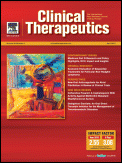
CLINICAL THERAPEUTICS
Elevating patient care with cutting-edge pharmacological insights.Clinical Therapeutics, published by Elsevier, is a highly esteemed peer-reviewed journal that has been pivotal in advancing the field of pharmacology since its inception in 1977. With an impressive impact factor and recognition as Q2 in Pharmacology and Q1 in Medical Pharmacology for 2023, it stands at the forefront of research and discussions on innovative therapeutic strategies and pharmacological advancements. This journal not only caters to a broad audience of researchers and clinicians but also plays a vital role in disseminating critical information that supports the enhancement of patient care and safety. As a repository of high-quality, evidence-based articles, Clinical Therapeutics is a crucial resource for those involved in drug development, medical research, and clinical practice, making it an essential read for anyone dedicated to improving health outcomes through pharmaceutical sciences.

HEALTH TECHNOLOGY ASSESSMENT
Navigating the complexities of health technology for better outcomes.HEALTH TECHNOLOGY ASSESSMENT is a prestigious open-access journal published by the NIHR Journals Library, focusing on advancing the science of health technology assessment through robust research and critical analysis in the fields of Health Policy and Medicine. Since its inception in 2001, this journal has fostered a multidisciplinary approach to evaluating health technologies, offering invaluable insights to researchers, healthcare professionals, and policymakers. With an impressive Q1 ranking in both Health Policy and Medicine (miscellaneous) for 2023, it stands at the forefront of academic discourse, reflecting a high-impact factor and an esteemed reputation within its respective categories. The journal not only publishes original research articles, but also reviews and case studies that illuminate the complexities of health technology in real-world applications. Established and based in the United Kingdom, HEALTH TECHNOLOGY ASSESSMENT strives to encourage evidence-based decision-making, making it an essential resource for anyone committed to enhancing healthcare outcomes through innovative technology assessments.

DRUG SAFETY
Bridging Research and Practice in PharmacologyDRUG SAFETY is a premier academic journal published by ADIS INT LTD, dedicated to the critical field of pharmacology and toxicology. Since its inception in 1990, the journal has established itself as a vital resource for researchers, clinicians, and healthcare professionals by providing high-quality, peer-reviewed articles that inform and advance the understanding of drug safety and efficacy. With an impressive impact factor and its current Q1 categorization in Pharmacology across various sub-disciplines, DRUG SAFETY is ranked among the top journals in its field, reflecting its commitment to excellence in scientific research. The journal features a diverse range of studies, reviews, and case reports addressing contemporary issues in drug safety, making it an invaluable tool for academia and industry alike. Although it is not an open-access journal, the content is accessible to subscribers and institutions, ensuring that essential findings in drug safety reach the widest audience possible. As the field evolves, DRUG SAFETY remains at the forefront, driving innovation and improving regulatory practices worldwide.
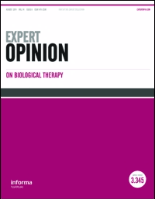
EXPERT OPINION ON BIOLOGICAL THERAPY
Unveiling the Latest in Pharmacological InnovationsEXPERT OPINION ON BIOLOGICAL THERAPY, published by Taylor & Francis Ltd, is a prestigious journal that has been a cornerstone in the fields of Clinical Biochemistry, Drug Discovery, and Pharmacology since its inception in 2001. With an impressive impact factor reflecting Q1 status across its categories in 2023, this journal is ranked among the top in both the pharmacology and biochemistry domains, featuring in the 81st and 77th percentiles respectively. This makes it an essential resource for researchers, professionals, and students who are keen on staying at the forefront of biological therapy advancements. The journal encompasses a broad yet focused scope, providing valuable insights into innovative therapeutic strategies and drug development methodologies. Researchers benefit from the rigorous peer-review process and the opportunity to disseminate their findings to a global audience, without the constraints of open access, ensuring the integrity and prestige of published work. As it converges towards 2024, EXPERT OPINION ON BIOLOGICAL THERAPY remains an influential platform for fostering collaboration and discussion in the evolutionary landscape of biological therapies.

Farmeconomia-Health Economics and Therapeutic Pathways
Connecting research and policy for effective healthcare solutions.Farmeconomia-Health Economics and Therapeutic Pathways is a pioneering journal within the field of health economics, dedicated to exploring the intersections of health policy, therapeutics, and economic evaluations. Published by SEED MEDICAL PUBLISHERS, this Open Access journal has been at the forefront of advancing knowledge since 2012, ensuring that vital research is readily accessible to a global audience without subscription barriers. The journal aims to facilitate the dissemination of insightful studies, systematic reviews, and theoretical discussions that determine the cost-effectiveness of therapeutic options, ultimately guiding evidence-based healthcare decisions. Based in *Torino, Italy*, this journal is committed to serving researchers, healthcare professionals, and students who are eager to contribute to and stay updated on the latest developments in health economics and policy implementation. With its broad-ranging scope and dedication to quality research, Farmeconomia stands as an essential resource for anyone engaged in the complex dynamics of health systems and their economic implications.
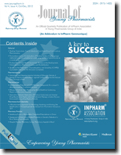
Journal of Young Pharmacists
Inspiring Young Minds in PharmacologyJournal of Young Pharmacists is a distinguished peer-reviewed journal published by INPHARM ASSOCIATION in collaboration with PHCOG NET. With an ISSN of 0975-1483 and an E-ISSN of 0975-1505, this journal serves as a vital platform for disseminating pioneering research in the field of pharmacology and toxicology. Although coverage in Scopus was discontinued in 2018, the journal continues to be important in educating future pharmacists and advancing the discipline, evident from its ranking in the 29th percentile among general pharmacology journals. The Journal of Young Pharmacists seeks to bridge the gap between theoretical knowledge and practical application, encouraging young researchers, professionals, and students to contribute their insights and findings. The journal emphasizes innovative approaches and contemporary issues relevant to the pharmaceutical sciences, making it an invaluable resource for anyone involved in this dynamic field.

European Journal of Hospital Pharmacy
Connecting Research and Practice in Hospital PharmacyThe European Journal of Hospital Pharmacy, published by the prestigious BMJ PUBLISHING GROUP, stands as a vital resource in the field of pharmacy, specifically focused on practices within hospital settings. With its ISSN 2047-9956 and E-ISSN 2047-9964, this journal provides an essential platform for researchers, practitioners, and students to disseminate and access high-quality research that influences clinical practice. Recognized for its significant impact, the journal has achieved a commendable Q2 ranking in both the Pharmacology, Toxicology and Pharmaceutics (miscellaneous) and Pharmacy categories according to Scopus, highlighting its status within the academic community. The journal is indexed among the top 18% in its category, showcasing innovative research and advancements in the field. While the European Journal of Hospital Pharmacy does not operate under an open-access model, its deep commitment to enhancing pharmaceutical care within European hospital settings remains undeterred. The journal also covers a converged period from 2010 to 2024, providing comprehensive insights into evolving practices and challenges. As a premier publication, it plays an essential role in education and professional development, making it indispensable for those involved in pharmacy and healthcare.

Safety is a prestigious Open Access journal published by MDPI, based in Switzerland, dedicated to advancing research in the fields of public health, environmental safety, and occupational health. Since its inception in 2015, the journal has become a vital resource for researchers, practitioners, and policymakers, striving to foster innovative solutions to safety challenges in various sectors. With its rigorous peer-review process and a 2023 ranking in the Q2 category for Safety Research, as well as a notable presence in public health and environmental disciplines, Safety is well-respected in academic circles, holding a Scopus rank of 37/109 in Safety Research and 87/207 in Safety, Risk, Reliability, and Quality. The journal aims to disseminate high-quality research that not only reflects the latest advancements but also aids in developing practical strategies for risk management and safety improvement. Supported by an open-access model, Safety ensures that cutting-edge research is readily available to a global audience, fostering collaboration and knowledge sharing for a safer environment.
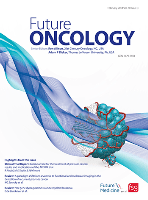
Future Oncology
Shaping the future of cancer treatment and research.Future Oncology is a premier peer-reviewed journal published by FUTURE MEDICINE LTD, dedicated to advancing research and innovation within the field of oncology. Established in 2005 and set to continue through 2024, this journal serves as an essential resource for researchers, healthcare professionals, and students engaged in cancer studies. With its emphasis on groundbreaking findings and multidisciplinary approaches, Future Oncology holds an esteemed reputation, reflected in its 2023 category quartiles ranking it in Q2 for Cancer Research and Q1 for Medicine (miscellaneous). The journal is indexed in Scopus, showcasing its rigorous content, with rankings in the 63rd percentile for Oncology and the 46th percentile for Cancer Research. Although it does not operate on an open-access model, its commitment to disseminating cutting-edge findings makes it an invaluable asset for those seeking to stay at the forefront of oncology research.Future Oncology strives to bridge the gap between laboratory and clinical research, fostering collaboration and appreciation for the complexities of cancer treatment.
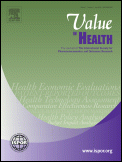
VALUE IN HEALTH
Championing Evidence to Enhance Public Health StrategiesVALUE IN HEALTH, published by Elsevier Science Inc, is a premier peer-reviewed journal in the fields of Health Policy, Medicine, and Public Health. With an impressive impact factor reflecting its respected standing, the journal has achieved a distinguished Q1 classification in multiple categories, placing it among the top publications in the health domain. Since its inception in 1998, this journal has been a vital platform for disseminating research that informs health policy and practice, impacting both clinical and public health decision-making. The journal’s Scopus rankings further underscore its global influence, with notable positions in Medicine and Public Health sectors. VALUE IN HEALTH is committed to fostering an environment where innovative research meets practical application, ultimately aiming to enhance health outcomes worldwide. Researchers, professionals, and students alike are encouraged to explore the wealth of knowledge contained within its pages.